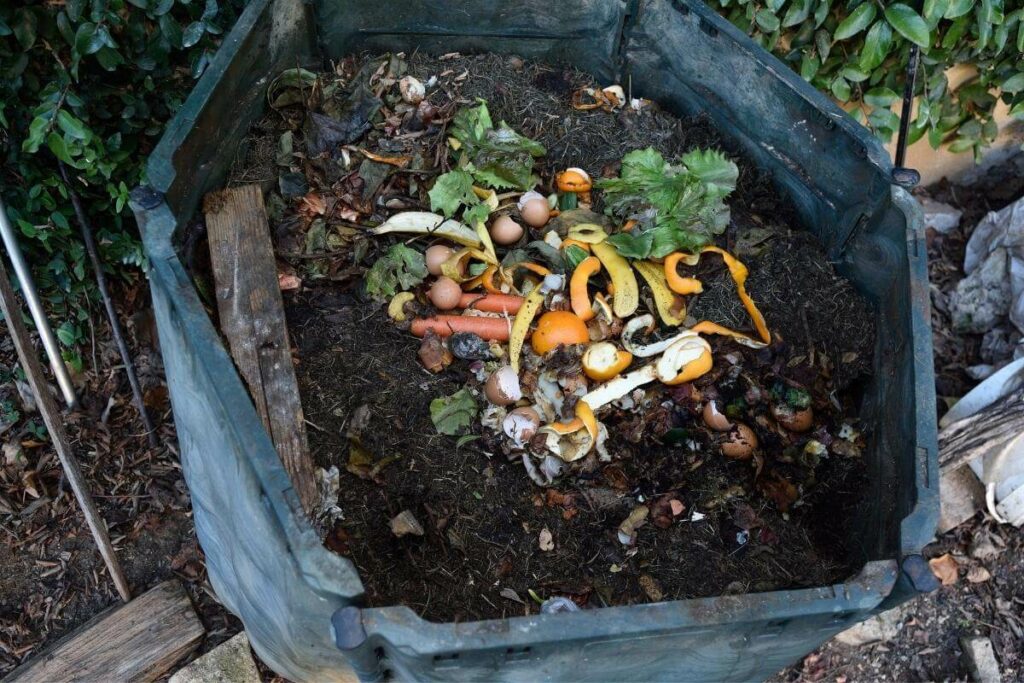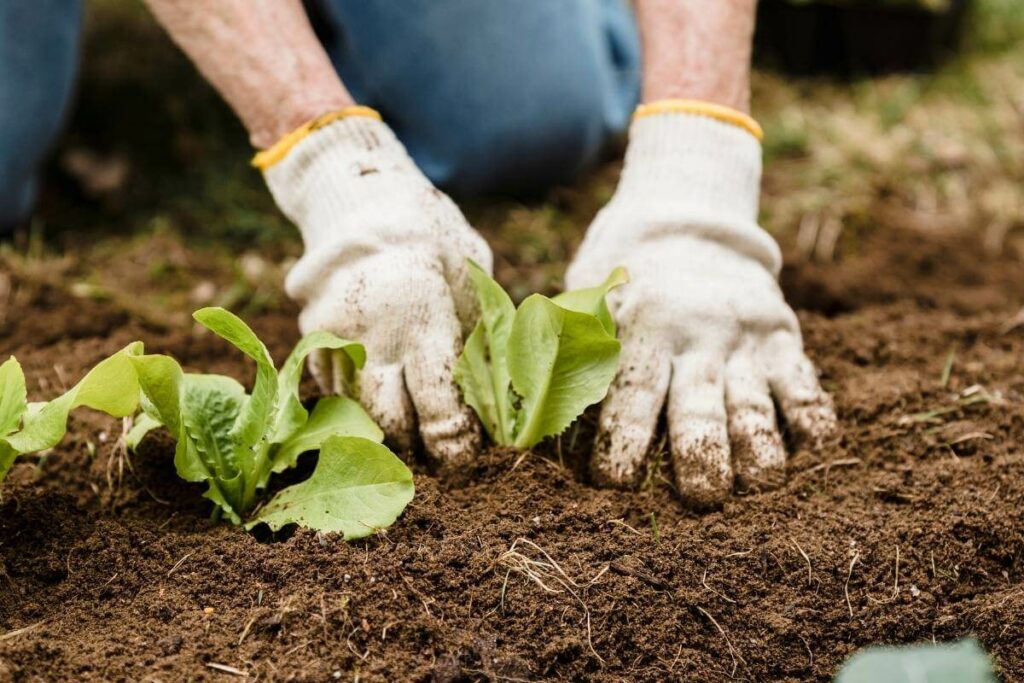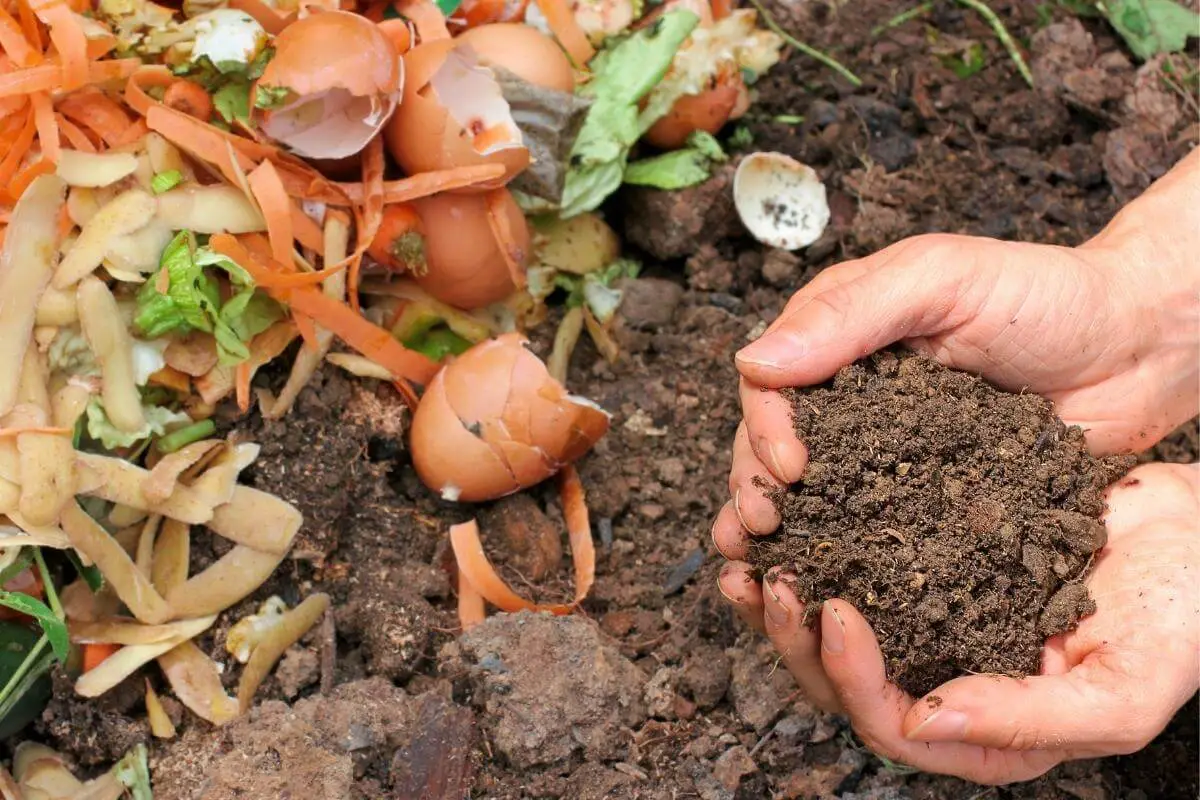If you have unfinished compost, you might be wondering whether it is okay to use it on your garden, or whether this is a bad idea.
Will it serve as a soil amendment and improvement, or should you avoid using it until it has totally finished decomposing?
Unfinished compost is fine to use in certain circumstances, but it should not be used for seedlings or plants that dislike low levels of nitrogen. If you want to mulch your ground or enrich it below the surface level, unfinished compost is an ideal way to do so.
How Do I Know If My Compost Is Unfinished?
Compost that has not yet finished decomposing will look quite different to compost that is finished.
Depending on what you have included when making the compost, you are likely to see remnants of the tougher materials in the unfinished version.
For example, you might see little twigs, bits of eggshell, fruit peels, scraps of straw, and the woody ends of vegetables mixed in with the darker composition of the parts that have composted.
The softer materials such as tea leaves, vegetables, fruits, and green matter will probably all have disappeared.
Have You Noticed This: You may also notice that unfinished compost is warmer than finished compost, because it is still actively decomposing, and the bacteria that are breaking it down will be generating heat.
Why Does Unfinished Compost Affect Nitrogen Levels?

Unfinished compost has an impact upon the nitrogen levels in your existing soil when you add it because the compost will “borrow” nitrogen from the surrounding soil as it decomposes.
This pulls it into the compost, and makes the nitrogen unavailable to the plants in that area. The more carbon in your unfinished compost, the more nitrogen it will pull from the surrounding soil to compensate.
In general, the bits of compost that are left at the end of the process are high in carbon (as a lot of nitrogen-rich ingredients like grass and food waste break down quickly).
While the nitrogen levels will eventually rebalance when the compost has finished decomposing, this can be harmful to plants that need nitrogen readily available, and can lead to nutrient deficiencies.
What To Avoid: It’s not a good idea to add unfinished compost around the base of any plants that need plenty of nitrogen, or you may find you have to fertilize them with nitrogen to maintain healthy growth.
What Can I Do with Unfinished Compost?
If you have unfinished compost that you wish to use up for some reason, there are two things that you can do with it.
You can either use it as mulch or you can dig it into the ground in the winter.
Using It as Mulch
You can use unfinished compost as a mulch around your plants, creating a thick bed to trap moisture in the soil during the summer. This is great around large plants such as bushes and trees in particular.
It’s not a good idea to mix unfinished compost with your normal soil in areas where you intend to grow plants very soon, or where existing plants are growing.
You can do so if you include an extra source of nitrogen or the plants are particularly hardy, but otherwise, only use it as a mulch on top of the soil.
This will stop it from having a noticeable impact on the soil beneath, because it will only be in contact with the surface, and won’t pull nitrogen from around the roots of the plants.
Over time, the goodness in the compost will start to wash into the soil, and the unfinished compost will continue to decompose and turn into finished compost.
This should result in richer soil overall, without the negative impact on the plants.
It’s Up To You: When the compost has totally finished, you can dig the mulch into the soil, but you don’t have to. The nutrients will wash down and become available to the roots over time even if the compost remains on the surface.
Digging It Into the Soil
If you have a bare patch of soil that you have no plans for, you can dig unfinished compost down beneath the surface.
It will continue decomposing beneath the ground, enriching the soil for later planting. You may have heard of trench composting – which is almost exactly what this is.
To dig your compost into the ground, first dig a hole that is larger than the quantity of compost you want to bury, and make sure it is easily deep enough to cover it with soil.
Tip the compost in, and then cover it up well with soil, patting the top down. This will prevent any rats, mice, or other critters from taking an interest in what you have buried.
If you don’t do it, you might find unfinished compost remnants dug up and scattered all over your yard.
Good To Check: You should make sure that everything has decomposed before you add any plants to the soil. Dig down and check that the soil all appears brown and crumbly, and then you can safely add plants. They should be fine, as the compost will have stopped taking nitrogen from the surrounding soil at this stage.
Is Unfinished Compost Ever Bad for Plants?

Yes, unfinished compost can be damaging to plants if it steals the nitrogen.
Most plants need nitrogen to grow well, and if there is not enough available in the soil, they will struggle.
If you have already dug unfinished compost into the ground around your plants, however, you don’t need to worry too much.
What To Do: You should add a nitrogen-rich fertilizer to the soil and not add any more unfinished compost. Give it some time to break down, and then use a soil testing kit here to check that the nitrogen levels have balanced out properly.
Summary
So, unfinished compost is not very harmful, but it should not be used around plants that are actively growing.
If you want to use unfinished compost so you can empty your compost bin and start afresh, you can do so by mulching or by digging it into the ground.
